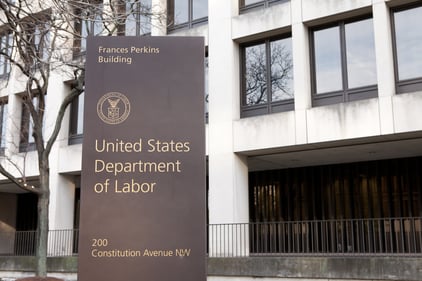 Some of you may be fatigued by the term “fiduciary rule” and rightfully so because the saga of the Department of Labor (DOL) fiduciary rule has been going on for several years. The DOL proposed its first iteration of the rule in 2010 and re-proposed the rule in 2015. After much controversy, media attention, and for some firms, millions of dollars spent to comply, the 5th Circuit vacated the fiduciary rule in its entirety in the case of Chamber of Commerce v. U.S. Department of Labor.[1]
Some of you may be fatigued by the term “fiduciary rule” and rightfully so because the saga of the Department of Labor (DOL) fiduciary rule has been going on for several years. The DOL proposed its first iteration of the rule in 2010 and re-proposed the rule in 2015. After much controversy, media attention, and for some firms, millions of dollars spent to comply, the 5th Circuit vacated the fiduciary rule in its entirety in the case of Chamber of Commerce v. U.S. Department of Labor.[1]
Without the fiduciary rule, what does that mean for plan sponsors? And, what does that mean for plan participants? What about participants that roll over their assets from the retirement plan into an individual retirement account?
To answers these questions and others, read the latest Guide from Multnomah Group.
As a plan sponsor, it is your responsibility to prudently select and monitor your service providers, which at a minimum means that you must understand the duty owed to your plan by such service providers. This Guide will assist you in understanding the current – and ever shifting – regulatory landscape and the impact of the DOL’s fiduciary rule being vacated as well as the introduction of the SEC’s Regulation Best Interest. The Guide will conclude with a set of action items for plan sponsors as they continue to navigate through a time of uncertainty in the financial services industry – trying to discern what standards of care apply to the financial services professionals serving the plan and its participants.
After you have had a chance to review the Guide, don’t hesitate to reach out to your Multnomah Group consultant with any questions.
Notes:
[1] Chamber of Commerce et al. v. United States Department of Labor, et al., No. 17-10238, available at: https://financialmarketslaw.files.wordpress.com/2018/03/document-3.pdf.
Multnomah Group is a registered investment adviser, registered with the Securities and Exchange Commission. Any information contained herein or on Multnomah Group’s website is provided for educational purposes only and does not intend to make an offer or solicitation for the sale or purchase of any specific securities, investments, or investment strategies. Investments involve risk and, unless otherwise stated, are not guaranteed. Multnomah Group does not provide legal or tax advice.
Any views expressed herein are those of the author(s) and not necessarily those of Multnomah Group or Multnomah Group’s clients.


